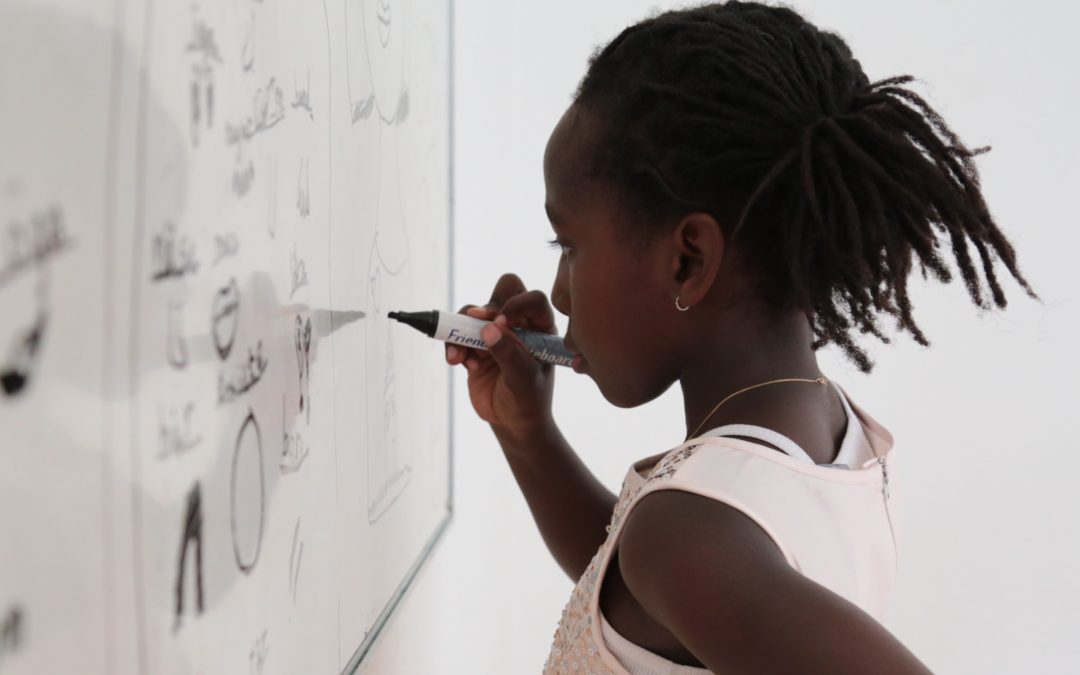Logic and research might tell us common stereotypes we carry aren’t the true picture of reality, but for kids, stereotypes are often clung to as if they are reality. As a result, many grow up believing scientists and mathematicians fit a certain mold, moving those who look differently to block out a wide array of opportunities.
Studies suggest big impact of STEM stereotypes
Research completed by Allison Master, Sapna Cheryan, and Andrew N. Meltzoff, a research scientist, associate professor, and Co-Director at the University of Washington’s Institute for Learning & Brain Science, found gender stereotypes have a strong ability to discourage young girls from pursuing STEM education. They found two main stereotypes at the crux of the issue: One says those who belong in STEM look and act a certain way and the other says girls simply lack the ability required to be successful in STEM.
In an article in The Washington Post they explain, “Research in our lab shows that children believe gender stereotypes about math and technology as early as second grade. By the time the girls get to high school, the belief that they are less talented in STEM is already ingrained. Why risk trying something new when the cultural stereotype predicts they won’t succeed?”
According to Maya A. Beasley and Mary J. Fischer, authors of the research paper, “Why they leave: The impact of stereotype threat on the attrition of women and minorities from science, math and engineering majors,” there is a strong correlation between minority groups who were made to be aware of negative stereotypes concerning their ability in certain areas and their consequent less-than-optimal performance in those areas. The pressure of performance or of disproving negative stereotypes made them perform below their actual abilities in comparison to when they weren’t reminded of those stereotypes, or when they were told to perform certain tasks surrounded only by those that looked like them.
A push to turn STEM stereotypes around
Pointing to falsity in a stereotype isn’t always enough to turn the tide of public perception. Sometimes it requires replacing the picture of that stereotype with something else, or going the extra mile to showcase just how absurd certain stereotypes are. Luckily there are organizations and individuals intent on running social campaigns to combat these gender and race-based stereotypes to remove some barriers to groups previously less inclined to pursue STEM education and careers.
Girls Do Code
Girls Who Code, a national nonprofit dedicated to getting more girls interested and involved in coding and computer science, recently released a series of satirical videos citing all of the utterly absurd theories surrounding why girls can’t code. With girls themselves putting a voice to these explanations, it suddenly becomes clear there’s no real reason why girls can’t tackle code just as well as their male counterparts. Take a look (and have a laugh): https://girlswhocode.com/girlsdocode/
#ILookLikeAnEngineer
When Isis Wegner, a platform engineer for OneLogin, was featured in one of their ads, there was plenty of feedback stating she “didn’t look like an engineer.” Fed up by these engineering stereotypes, she started the hashtag #ILookLikeAnEngineer. It caught on like wildfire and received over 50,000 tweets in three days. The hashtag is still going strong today — check it out: http://bit.ly/1XYvu9K.
Have you seen an organization or social campaign working hard to change STEM stereotypes? Leave us a comment!


Do you have any local programs that students of color can participate in at the elementary level? I have a daughter who is 11 and a son who is 9.